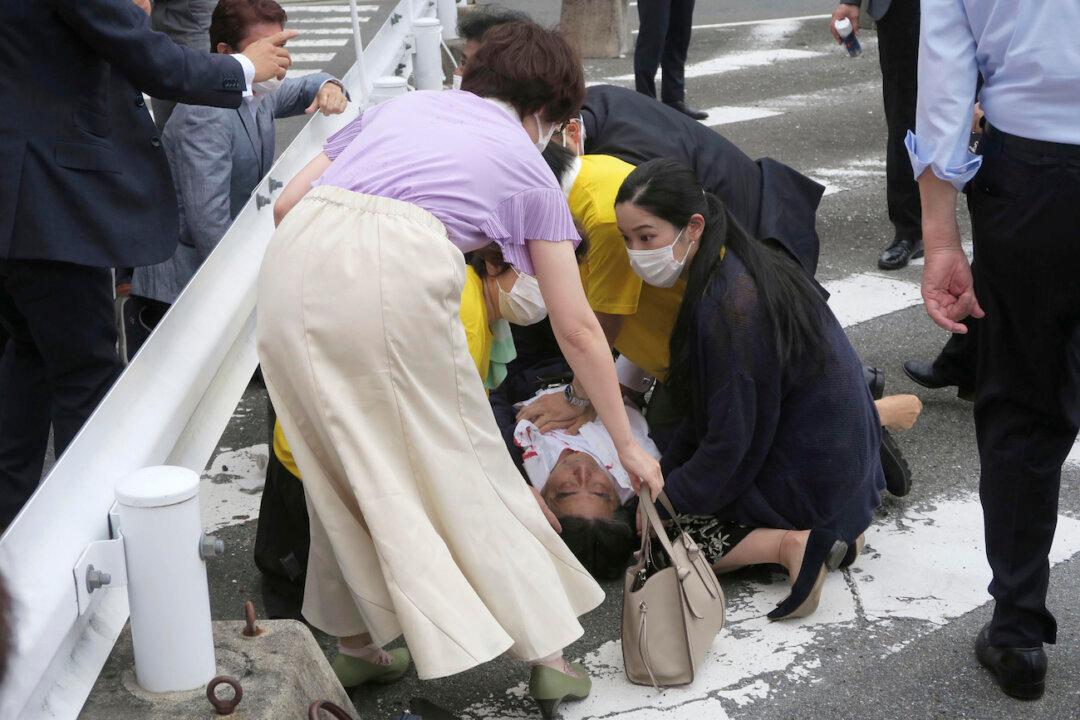Nara Medical University’s emergency department chief said no bullets were found in the body of former Japanese Prime Minister Shinzo Abe when he was operated on after being fatally shot on Friday.
Hidetada Fukushima said Abe suffered major damage to his heart, along with two neck wounds that damaged an artery. He never regained his vital signs, Fukushima said.





